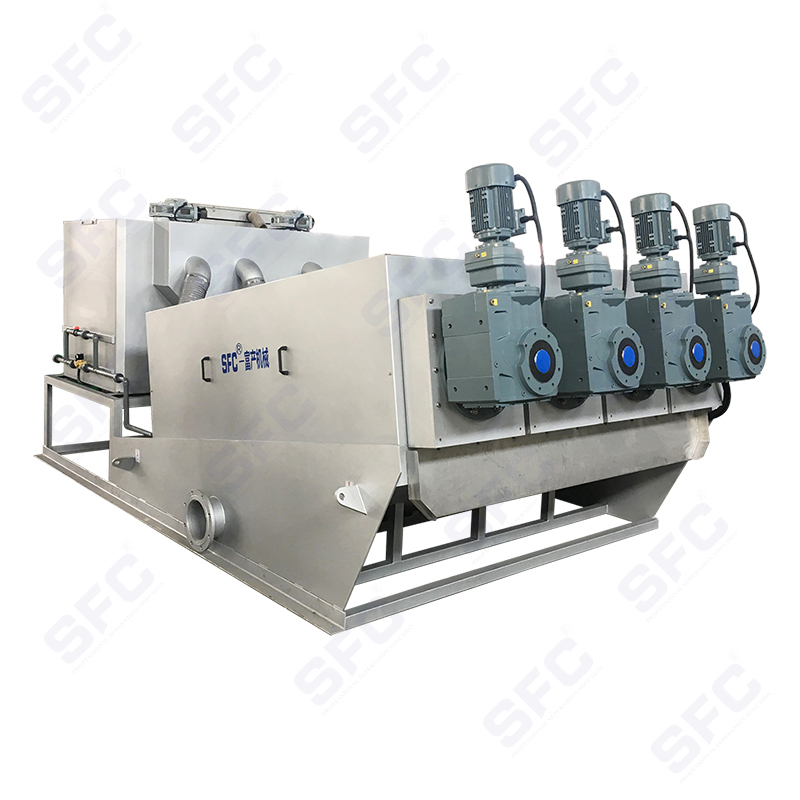Sludge Dewatering Machines: Essential Technology for Efficient Wastewater Treatment
Sludge dewatering machines are vital components in modern wastewater treatment plants, playing a crucial role in reducing the volume of sludge generated during the treatment process. By separating water from the sludge, these machines enable more efficient handling, disposal, and possible recycling of the solid byproducts.
In wastewater treatment, sludge is the residual material that remains after water has been treated to remove contaminants. This sludge consists of organic matter, microorganisms, chemicals, and water. The volume of sludge produced can be significant, and without effective treatment, it can become a major challenge for municipalities and industries alike. Dewatering, or the removal of water from the sludge, is essential in reducing its volume, making it easier to handle, store, or dispose of.
Dewatering serves several critical functions in wastewater treatment:

Volume Reduction: By removing excess water, dewatering reduces the volume of sludge, making it more manageable and easier to transport or store.
Cost Efficiency: The more concentrated the sludge, the less it costs to transport and dispose of. Dewatering reduces disposal fees and helps optimize treatment processes.
Energy Efficiency: Dewatered sludge is often more suitable for energy recovery processes like incineration or anaerobic digestion, where concentrated solids offer higher energy yields.
The effectiveness of a sludge dewatering system can significantly influence the overall operational efficiency and environmental sustainability of a wastewater treatment plant.
There are several different types of sludge dewatering machines, each with its own advantages and suitable applications. The choice of machine depends on factors such as the type of sludge, the desired moisture content, the volume of sludge, and the space available at the treatment plant.
Centrifuge dewatering machines are among the most widely used technologies for sludge dewatering. These machines use high-speed rotational force to separate the solids from the water in the sludge. As the sludge is fed into the centrifuge, centrifugal force pushes the solids outward while the water is forced through perforated screens. This process is highly efficient and effective for a wide variety of sludges, including those with high water content. Centrifuges are often used in municipal wastewater treatment plants and industrial applications.
Advantages:
High dewatering efficiency
Suitable for a wide range of sludge types
Compact and energy-efficient
The belt filter press is another common machine used for sludge dewatering. It consists of two or more belts through which the sludge is passed and squeezed. As the sludge travels through the belts, pressure is applied, forcing the water to drain out. This method is widely used in both municipal and industrial wastewater treatment plants and is especially effective for sludges with moderate water content.
Advantages:
Simple and reliable technology
Lower operational costs compared to centrifuges
Good for dewatering larger volumes of sludge
The screw press is a relatively newer technology used in sludge dewatering. This machine operates by using a rotating screw to apply pressure to the sludge as it passes through the press. The water is forced out, and the solid sludge is gradually compacted. Screw presses are known for their simplicity, ease of operation, and low maintenance requirements.
Advantages:
Low energy consumption
Continuous operation, reducing downtime
Requires less space compared to other machines
Lower dewatering efficiency for certain types of sludge
May require more frequent maintenance depending on the sludge characteristics
Filter dryers use filtration and heating to remove the moisture from sludge. The dewatering process involves pressing the sludge through a filter while applying heat to evaporate the remaining moisture. These machines are commonly used in industries that need to handle thick, high-solids content sludge.
Advantages:
Effective for sludges with very high solids content
Can be integrated into energy recovery systems



 English
English Español
Español













